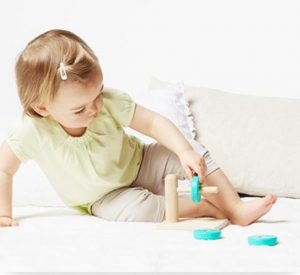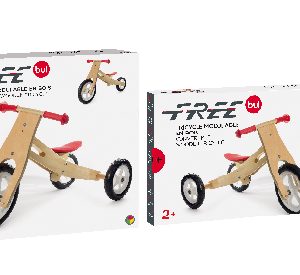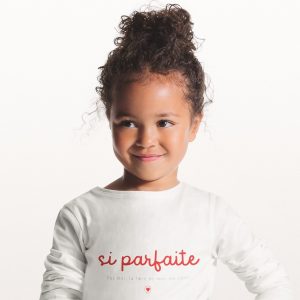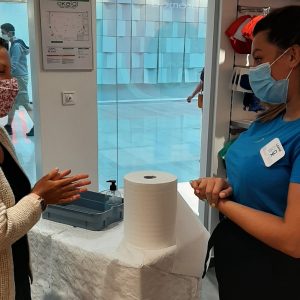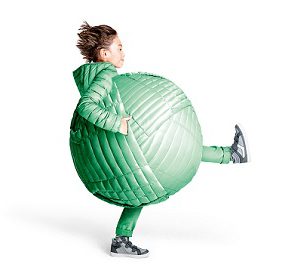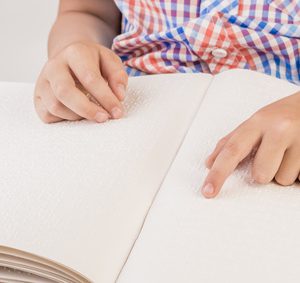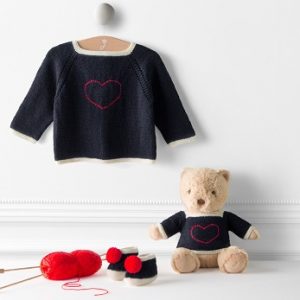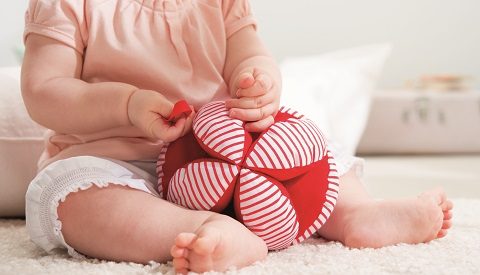

Since its founding Oxybul has developed toys and games to promote children’s early learning and self-fulfilment and help them to explore. It was a natural move for the brand to create a special Montessori range inspired by the work of Maria Montessori.
What do Montessori toys aim to do?
- Promote independence and develop self-confidence. The aim is to stimulate a desire to learn through the use of simple, well-designed sensory equipment. Each toy focuses on a single skill to foster self-confidence. The more children repeat the same movement, the better their bodies remember it.
- Let children develop at their own pace. Each child’s specific characteristics, stage of development, sensitivities and personality are taken into account and a reassuring environment without overstimulation is provided to promote concentration.
- Teach children to check their mistakes. An adult first names the parts of the toy and explains how it works using slow, precise movements. Children can then get a feel for it and explore it fully. If they make a mistake, they can spot and correct it. They learn gently under the watchful eye of the adult who can put them back on the right track with a simple look.
What is the Ateliers Montessori range?
Oxybul believes in the Montessori method and wanted to create a special range to give growing children different experiences tailored to their stage of development. It is suitable for the very youngest children from birth onwards. Each product is accompanied by an introductory booklet and a product fact sheet for parents.
Oxybul worked with Emmanuelle Opezzo to create and develop this range. Throughout the production process (product design, choice of materials, supplier selection, prototype validation and marketing) there is regular dialogue to ensure the product fully meets the criteria of the Montessori method.
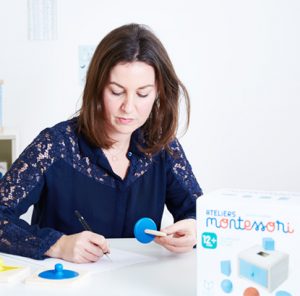
A graduate of the Association Montessori Internationale, Emmanuelle Opezzo is convinced that this approach helps children realize their true potential and that the Montessori method can work outside a classroom environment. Wanting to make it more widely available to children and parents, she founded KOKO CABANE, the first family centre in Paris to offer workshops based on practising and communicating the Montessori method.
Fifty-one products are available to foster children’s learning and give them a better understanding of their environment by:
- Developing their fine motor skills, precision of movement, concentration and sound perception.
- Stimulating their vision and sense of touch.
- Helping them learn how to get dressed.
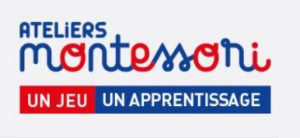
The Takane Ball is one of the flagship products from the Ateliers Montessori range
This ball designed for tiny tots is an excellent example of the simple, well-designed toys in the range. Easy to hold, it can be used in several different ways depending on the age of the child. It can be hung over their hands or feet so they can try to touch and grab it. A seated child can hold it in their hands, pass it from one hand to the other, throw it and roll it. Playing with the ball helps to develop grasping skills and tone legs.
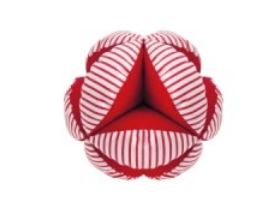
This product has been approved by our parent-testers. Hélène, mum to Quentin (8 months), had this to say: “This pretty ball is really practical for both children and parents as it can easily be machine washed. Its soft texture means children can’t hurt themselves. It’s designed to be easy to hold in one or two hands and when he’s a bit older Quentin will be able to roll it. It’s a real all-in-one ball!”
A word from Emmanuelle Opezzo
- What does Koko Cabane aim to do?
Koko Cabane aims to teach families about Maria Montessori’s philosophy so they can support children in line with their natural needs and rethink the parental role at home. The centre offers awareness and practice workshops, an advice service and educational events. 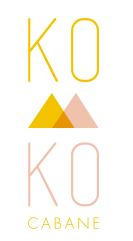 I create opportunities to extend the scope of the Montessori philosophy to families, offering a venue, events, activities and facilities that bring together children and parents in an everyday setting outside of the classroom environment.
I create opportunities to extend the scope of the Montessori philosophy to families, offering a venue, events, activities and facilities that bring together children and parents in an everyday setting outside of the classroom environment.
- What do you like most about the partnership with Oxybul?
The partnership with Oxybul was a natural one as the brand’s values are very similar to those of Montessori. I like the idea of helping to develop children’s awareness by offering families attractive sensory toys. Parents need guidance to buy the best toys for their children and it’s important to help them make the right decisions and tell them what to expect.
- What advice would you give to parents who want to understand the Montessori method?
I always remind parents that the Montessori method is first and foremost a philosophy and then an approach. Understanding that children have important sensory and motor needs to grow physically and intellectually is vital, as is the confidence we must instil in them. Toys are just one way to offer them shared experiences that nurture their intellectual and socioemotional skills. The key for parents is to keep it playful and not expect to see a particular result.
- View Oxybul’s Ateliers Montessori activity toys
- More information on Koko Cabane
- About Maria Montessori: an early-20th-century physician, psychiatrist and anthropologist, she dedicated her life to observing and understanding children. Her work led her to develop a teaching method and customized equipment to support children as they explore the world.
